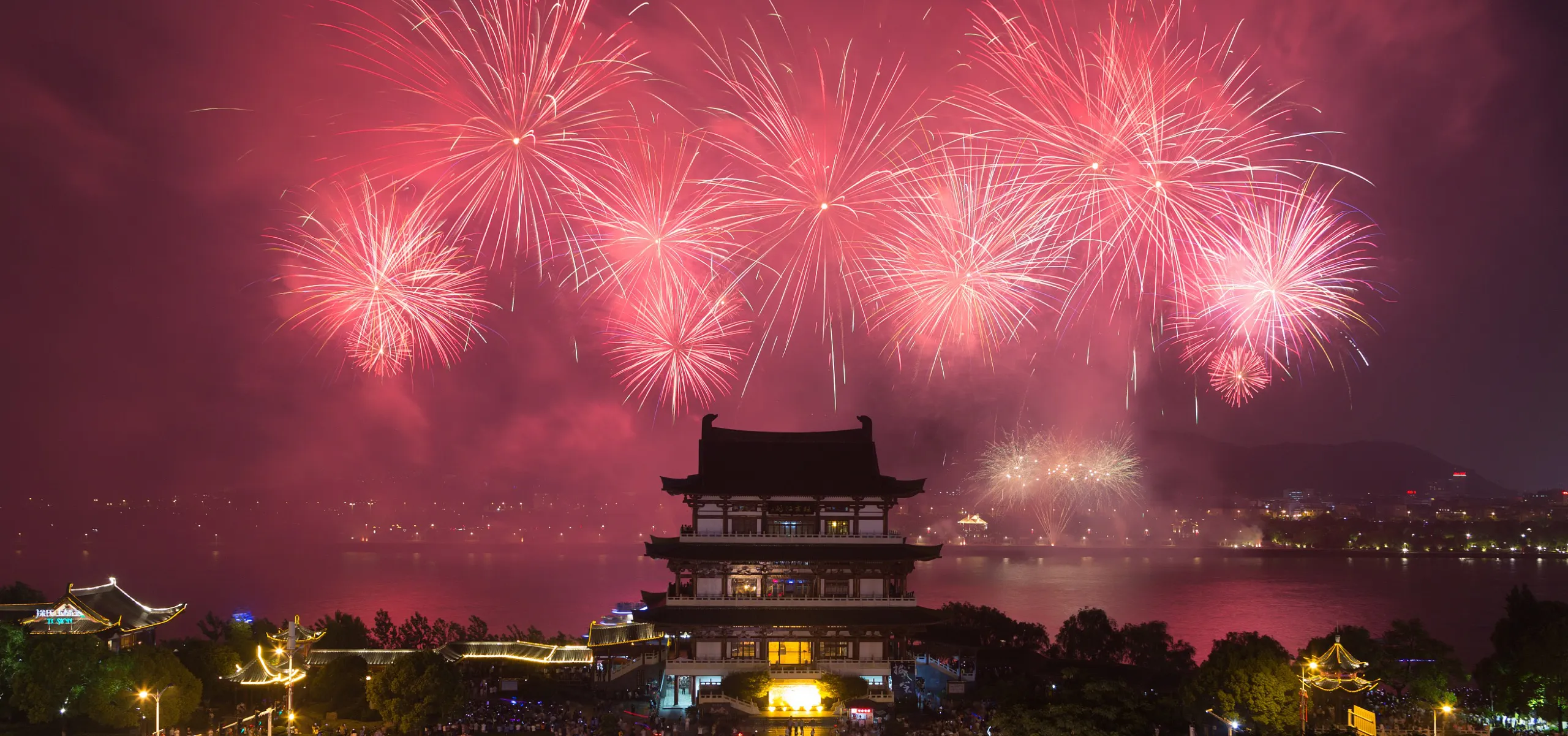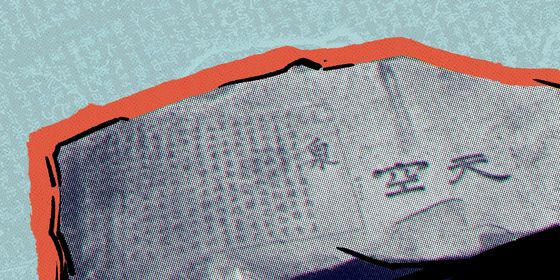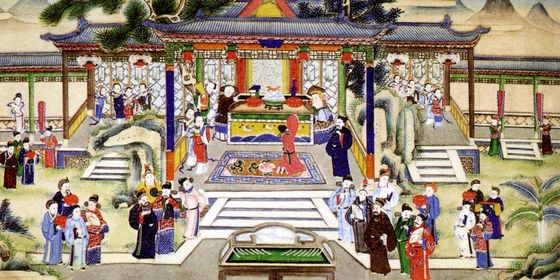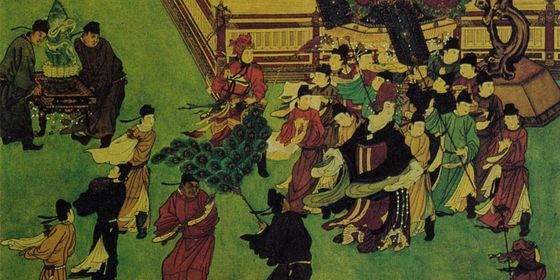The date and means of celebrating a new year changed and evolved over centuries in ancient China
Like in other countries around the world, many people in China welcomed January 1 with drinking, fireworks, and merriment. But while the first day of the Gregorian calendar is known as “元旦 (Yuándàn)” in Chinese today, where “元” means “beginning” and “旦” means “day,” it was not always this way.
Though the Gregorian calendar is a modern introduction in the country (only adopted after 1912), Yuandan has existed as a term, and been celebrated as a holiday, for over 1,500 years, marking the beginning of “正月 (Zhēngyuè),” the first month of the year.
So, in ancient China, which day was Yuandan? The answer varied depending on the dynasty. Observing the passing of four seasons and the cycle of the moon, ancient Chinese divided the year into 12 months. But different dynasties defined different months as the beginning of a year, so Yuandan moved around.
According to The Small Calendar of the Xia (《夏小正》), an almanac believed to have been finished in the Warring States period (475 – 221 BCE), the Xia dynasty (c.2070 – 1600 BCE) established the first calendar based on the moon’s cycles. This calendar is still in use today to mark traditional Chinese festivals and seasons, and sometimes referred to as the “Xia calendar (夏历 Xiàlì),” or more commonly the “lunar calendar (阴历 yīnlì)” or “agricultural calendar (农历 nónglì).”
The Xia dynasty set Yuandan on the occasion of the second new moon after the Winter Solstice, and that day marked the start of Zhengyue and a new year. But subsequent dynasties released their own official calendars and changed months around to assert their authority and differentiate themselves from the previous rulers.
For example, according to the Records of the Grand Historian (《史记》) by scholar Sima Qian (司马迁) of the Han dynasty (206 BCE – 220 CE), the Shang dynasty (1600 – 1046 BCE) set the 12th month of the Xia calendar as the first month of their own calendar, so Yuandan moved back a month. Then, when the Zhou dynasty (1046 – 256 BCE) came into power, the 11th month of the old Xia calendar became the new first month.
When Qin Shi Huang, China’s first emperor, united the realm and founded the Qin dynasty (221 – 206 BCE), he moved 正月 again to what was originally the 10th month of the Xia calendar. This lasted until the reign of Emperor Wu of the Han dynasty, who moved Yuandan back to where it was in the Xia calendar. This lasted until the end of the Qing dynasty (1616 – 1911).
Whereas today, Yuandan marks the start of the Gregorian or “solar calendar (阳历 yánglì),” and the Lunar New Year or “Spring Festival (春节 Chūnjié)” the beginning of the lunar calendar, Yuandan was the only new year in ancient times. It was therefore the most important festival of the year, and celebrations were often lavish.
In the Western Zhou dynasty (1046 – 771 BCE), government officials from across the land were invited to an audience with the ruler on Yuandan. The event was known as the “Grand Assembly (大朝会).” Rather than a celebration, this was akin to an annual board meeting, with officials reporting on their year’s achievements.
According to the Confucian classic Mencius (《孟子》), a text recording conversations between philosopher Mencius with state rulers at that time, “feudal princes...who missed [the Grand Assembly] once would be demoted; those who missed it twice would see their land reduced; those who missed it three times would become the target of the royal army.” After the meeting, there would be a banquet held to treat the officials who attended at least.
In the Northern and Southern dynasties (420 — 589), the custom of drinking “椒柏酒 (jiāobǎijiǔ),” alcohol infused with pepper and soaked cypress leaves, emerged. People believed this fiery beverage could ward off evil spirits and give long life to the drinker. Poet Yu Xin (庾信) wrote of the drink: “Drinking the evil-exorcising spirit on Yuandan is what makes one live longer in the new year.”
During the Song dynasty (960 — 1279), Yuandan became more of a festival, with seven days of holiday granted to all subjects of the emperor, according to the Notes of the Rustic Guest (《野客丛书》), an academic text from the time. What’s more, although gambling was generally banned and harshly punished during the Song, people were permitted to play a betting game called “关扑 (guānpū)” during the first three days of the holiday. Participants bet their goods or fortunes, and flipped a coin to see who would take the lot.
Later, during the Qing dynasty, emperors would spend Yuandan praying for blessings from heaven. The Jiaqing Emperor recorded the process in his own notes: During the first shichen (时辰, two-hour period) of Yuandan, the emperor should light a candle, pour tusu wine (酴酥酒 túsūjiǔ , wine made from a type of grass) into a gold cup, and dip a writing brush in it. He should then dip the brush in ink, and write some auspicious words for the coming year. The emperor would then look through the calendar of the year ahead, to symbolize that the ruler would respect the order of nature in the coming months.
In 1912, when imperial rule came to an end and the Republic of China (1912 — 1949) was established, the Gregorian calendar was formally introduced. Yuandan was changed to refer to the first day of the Gregorian calendar on January 1, while the beginning of the lunar calendar, which is still typically known as New Year (新年 xīnnián) in Chinese, is also known as Chunjie as the date is close to the first solar term of the year, 立春 (Lìchūn, Spring Begins).
The upshot today is that China has two holidays not too far apart from each other, both celebrating the start of a new year—not a bad outcome for the country’s exhausted workers.













